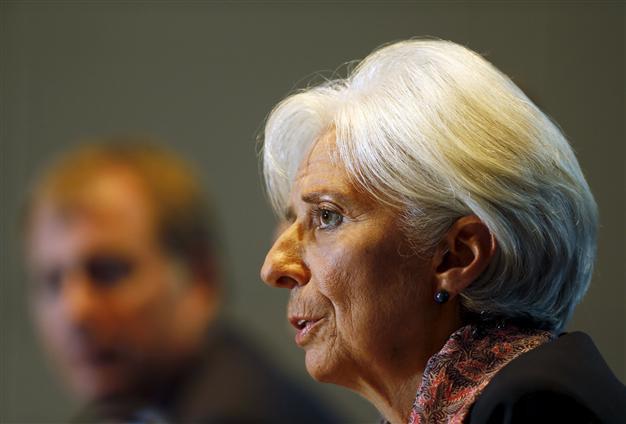IMF warns G-20 of increasing downside economic growth risks
WASHINGTON - Reuters

REUTERS photo
Downside risks to the global economy have risen and a combination of threats including slower growth in China and rising market volatility could severely cut the outlook, International Monetary Fund (IMF) staff warned on Sept. 2.A note prepared by IMF staff for a meeting of Group of 20 finance officials describes a cocktail of potentially dangerous risks ranging from a stronger U.S. dollar to depreciating currencies in emerging markets, falling commodity prices and weaker capital inflows.
“Risks are tilted to the downside, and a simultaneous realization of some of these risks would imply a much weaker outlook,” said the note, prepared for the G-20 meeting in Ankara, Turkey, on Sept. 4-5.
The IMF in July lowered its global growth forecast for 2015 to 3.3 percent and forecast growth in China - where a currency devaluation and growth concerns have fanned sharp moves on global financial markets - would slow to 6.8 percent.
IMF staff said China should keep up reforms to liberalize its economy, despite the market gyrations.
“The recent sharp equity market corrections should not discourage the authorities from continuing with reforms to give market mechanisms a more decisive role in the economy, eliminate distortions, and strengthen institutions,” the note said.
The need for policies to boost growth among G20 nations has become more urgent in the last six months and accommodative monetary policy in advanced economies was “essential,” the note said, also stressing the case for structural reforms to boost potential output and productivity.
The U.S. Federal Reserve, whose next policy meeting on Sept. 16-17 is being keenly awaited to see if it will raise benchmark interest rates for the first time since 2006, should keep its decisions “data-dependent.”
The Bank of Japan should stand ready for further easing, and the European Central Bank should extend its asset-buying program unless inflation, which is showing signs of stabilization, picks up sufficiently, the note said.
But while economic activity in advanced economies is projected to pick up modestly this and next year, the outlook for emerging markets was more worrisome and the policy response trickier.
Although allowing currencies to depreciate was critical for countries with limited room to cut interest rates or boost spending, weaker exchange rates could worsen the outlook for inflation, the note said.
















